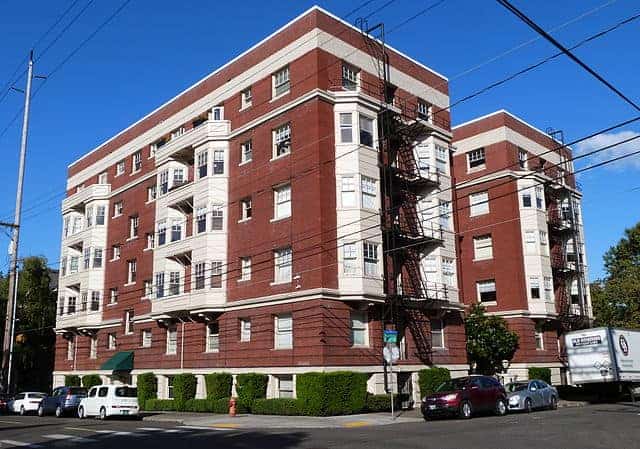Some investors earn monthly income from rental properties. However, they’re responsible for dealing with maintenance, paying property taxes or strata fees, and may even have to chase down tenants for the rent.
It’s not for everyone. If that doesn’t sound like you, you can still earn rent in another way: passively, via real estate investment trusts (REITs).
Let’s say that an investor is able to earn $1,000 per month for a condo of $300,000, which comes out to a yield of nearly 3.5%.
It’s actually pretty easy to find more than double that yield from REITs. Moreover, instead of you having to repay a mortgage, the leverage is on the REITs. So, there’s no pressure on unitholders, and they can simply sit back and watch the cheques roll in every month.
Here are two reasonably valued REITs with yields of at least 7.5%.
Globally diversified healthcare REIT with a 7.5% yield
Thanks to its bought deal offering, NorthWest Health Prop Real Est Inv Trust (TSX:NWH.UN) dipped nearly 4% on Wednesday to about $10.65 per unit. As a result, the healthcare REIT now offers a yield of 7.5%.
This is not the first time that Northwest Healthcare has used the market as a source of funding. This deal will help the REIT raise gross proceeds of $85 million.
Primarily, it plans to use the net proceeds to repay its revolving debt, so the debt capacity can potentially be used to fund future acquisitions or for general trust purposes.
The story of Northwest Healthcare hasn’t changed. The REIT has a globally diversified portfolio of healthcare properties, including hospitals and medical office buildings.
Specifically, the REIT has interests in 141 properties across 9.5 million square feet of gross leasable area in major markets of Canada, Brazil, Germany, Australia, and New Zealand.
Northwest Healthcare maintains a high occupancy rate of about 95%. For many of its global tenants, it has rental increases indexed to inflation.
Moreover, it has a weighted average lease expiry of 11 years. Additionally, its normalized payout ratio is 87%.
These factors make the REIT’s rental income (and the unitholders’ rental income) fairly stable.

Hotel REIT with an 8.1% yield
Through American Hotel Income Properties REIT LP (TSX:HOT.UN), investors can access a portfolio of 95 hotels and 9,383 rooms in 30 states and 80 cities.
American Hotel has a branded portfolio of 49 hotels, consisting of strong brands, such as Marriott and Hilton.
The REIT is also the leading provider of rail crew lodging with its 46 Oak Tree Inns in 23 states. For its rail portfolio, about three-quarters of its room revenue is guaranteed.
Moreover, it has about 4.3 years of average contract term remaining with inflation-adjusted room rate escalates. So, it benefits the REIT when the big railroad companies are doing well.
The REIT maintains a conservative payout ratio of about 84% which supports its U.S. dollar–denominated distribution. Thanks to a strong greenback against the loonie, Canadian unitholders can enjoy a nearly 8.1% yield.
Investor takeaway
By buying an equal amount in the REITs, investors can enjoy a yield of 7.75%. To enjoy $1,000 of monthly income, you only need to invest $160,000 in total.
No matter how much you end up investing, the main point is that you can earn big rental cheques by investing in REITs instead of individual properties with no leverage on your part.








